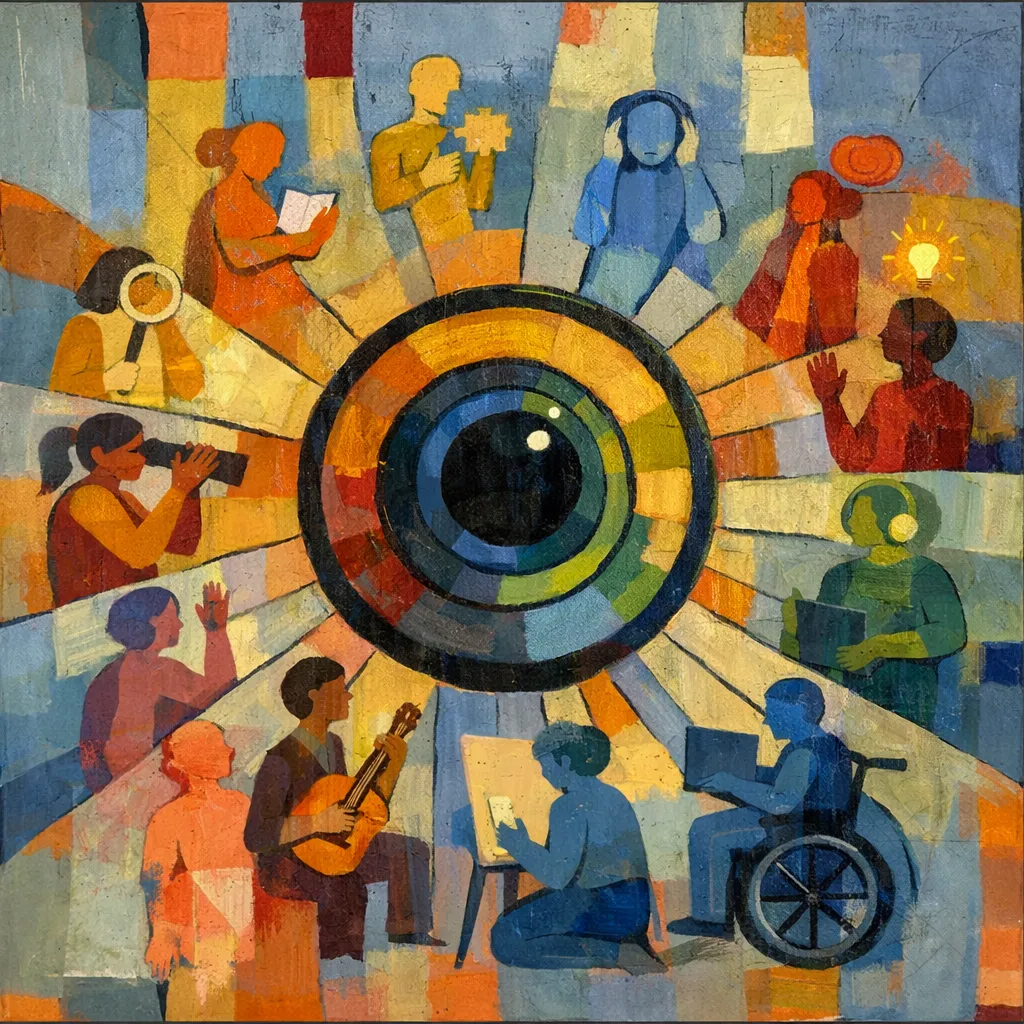
The R.E.A.L. Neurodiverse™ Framework for Providers
Neurodiversity-affirming programs for professionals supporting Level 1 autistic adults, their life partners, and families. Structured yet flexible.
Your Clients Need More Than Awareness
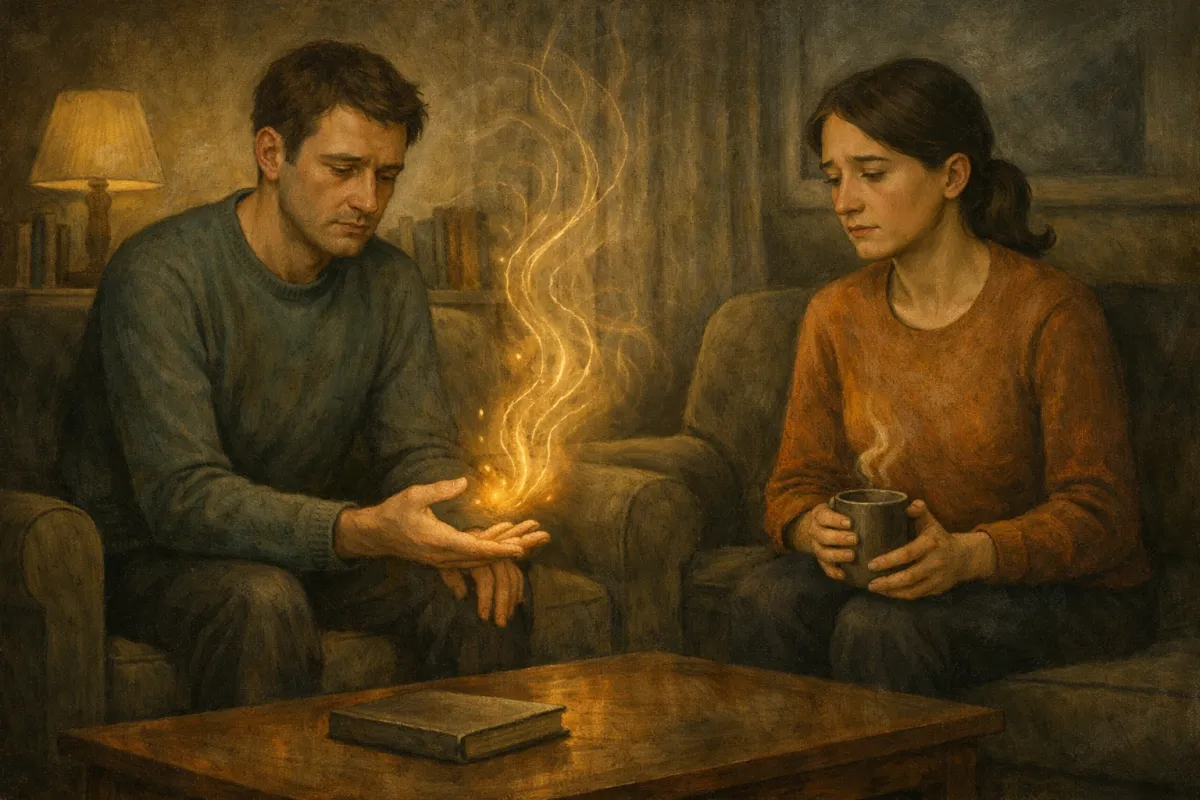
Level 1 autistic adults and their families and partners come to you stuck—struggling with communication, intimacy, and patterns they can't name. Traditional approaches weren't designed for the unique dynamics of neurodiverse relationships.
The R.E.A.L. Neurodiverse™ Framework gives you a complete theoretical foundation and practical tools to help these families move from confusion to clarity.
Understanding
Neurodiverse Relationship Dynamics™
The R.E.A.L.™ Framework begins with a lens — not a diagnosis, not a protocol — that makes it possible to finally see what's actually been happening beneath the surface of the struggle.
Neurodiverse Relationship Dynamics™ (NRD™) are the distinct, recurring patterns that emerge when people with fundamentally different neurologies attempt to connect and care for one another in close relationships. They are not signs of emotional failure. They are the natural result of two nervous systems perceiving and responding to the world in genuinely different ways — without a shared map.
The painful struggles in these relationships — the signal confusion, the exhaustion, the sense that genuine effort keeps producing the same impasse — are real for every person in the system. Autistics carry the relentless weight of navigating a world not built for their neurology, often masking in ways that are invisible even to the people trying to help them. Non-autistics carry their own burden: a chronic sense of disconnection inside relationships they deeply value, sometimes labeled Cassandra Syndrome or codependency, but better understood as the long-term effect of a neurological mismatch that was never named.
Neither experience is a disorder. Neither is a character flaw. Both belong to the relational field — to what happens between nervous systems when the dynamic goes unsupported.
When those dynamics go unrecognized, clients on both sides don't just stay stuck — they often leave the support experience feeling worse, having been told their struggles reflect something about their character or history. The NRD™ lens offers a different question entirely: what if it's two nervous systems doing exactly what their neurologies were built to do, without any support for the gap between them?
That question changes everything — for every nervous system in the relationship.

Everything Providers Need, From Day One
As soon as a provider subscription is activated — typically within 3 business days from enrollment — you have full access to the entire R.E.A.L. Neurodiverse™ program.
From there, solo-practice providers have two months to complete the NFS-E credential at a pace that works for you.
🧠
The R.E.A.L™
10-Step Pathway
A structured yet flexible 10-step pathway that guides insight, skill-building, and long-term integration within neurodiverse families and intimate partnerships.
⚕️♾️
Provider & Client Pathways
Synchronized pathways that keep you and your clients moving through the same progression together — so the work stays connected and builds over time.
🔶🔷
Divergent Tracks by Neurology
Parallel but differentiated pathways for autistic and non-autistic clients—designed to honor neurological differences in processing, pacing, and relational growth.
👨👩👧👦👫
Partnership & Family Focuses
Distinct programs for neurodiverse families and life partnerships, designed to address the specific relational patterns that emerge in each context.
⚕️
Provider Program Hub
A comprehensive provider hub offering a full overview of the program’s structure, step-by-step resources, and guidance on how to implement them.
📹
Educational Videos
A step-by-step Core Concept video library of over 200 videos—each with a provider guide and tailored support questions—so you and your clients build a shared language from day one.
🌀
Seven Integration Modalities
Seven ready-to-use integration tools for individual sessions—designed differently for autistic and non-autistic clients—so insight becomes real-world change.
🌿
Relational Discussions
Optional structured discussions for partners or families—introduced after individual work—so insight becomes shared understanding.
⚖️
Quantitative Assessments
Five empathy spectrum assessments that invite clients to explore how emotion and empathy actually move through their lives and relationships.
🗺️
Mapping & Visual Tools
The Individual Empathy Spectrum Plot™ (IESP™)—a visual mapping tool that turns complex emotional patterns into something clients can see, track, and work with thoughtfully.
🎓
Research Foundations
Framework papers that anchor each tool in research and theory—for providers and clients who want to explore more deeply.
➡️
Supplemental Resources
Supplemental reflection and dyadic tools that provide added support when clients are ready to explore more complex relational insight.
This is neurodiversity-affirming support that honors individual need, respects every nervous system in the room, and keeps the relational work moving forward.
A Complete System, Not Just Tips
R.E.A.L.™ Stands for Resources & Education Across the Lifespan.
Framework Foundations
The 10-Step R.E.A.L. Approach — A Structured Yet Flexible Pathway From Education, to Assessment to Integration
Divergent Development Pathways — Distinct support tracks for autistics and non-autistics across all steps
Seven Integration Modalities — Multiple ways to apply insight, tailored to diverse processing styles
Framework Papers & Research Foundations — Theory-grounded, trauma-informed, and developmentally sequenced materials supporting each component of the R.E.A.L. model
Client-Facing Tools
Psychoeducational Video Series — Over 200 accessible, structured learning modules for clients and family members
Structured Reflection & Journaling Tools — Step-aligned exercises to support internal processing
Structured Discussion Tools — Guided materials for couples and families navigating Neurodiverse Relationship Dynamics™ (NRD™)
Assessment and Insight
Quantitative Empathy Spectrum Assessments — Formal tools to measure interoception, embodied simulation, theory of mind, and more
Session-by-Session Insight & Integration Materials — Support for providers to facilitate structured meaning-making throughout the program
Provider Support
Step-by-Step Implementation Guides — Clear instructions for applying each phase of the framework in real-world practice
Tiered Credentialing Pathway — Progressive credentials (NFS-E, NFS-S, NFS-P) reflecting increasing scope, access, and responsibility
Ongoing Program Updates — Access to new content, tools, and assessment expansions as the framework evolves
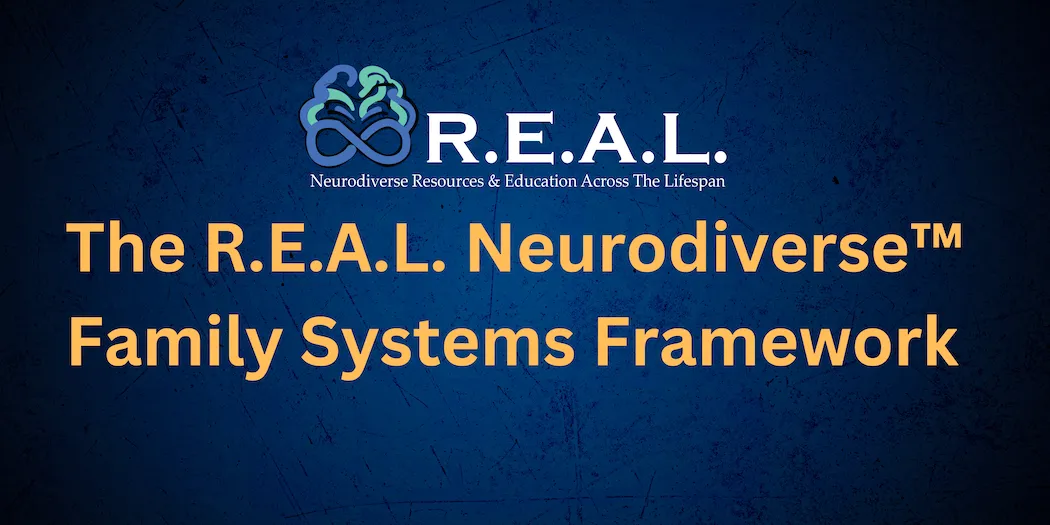
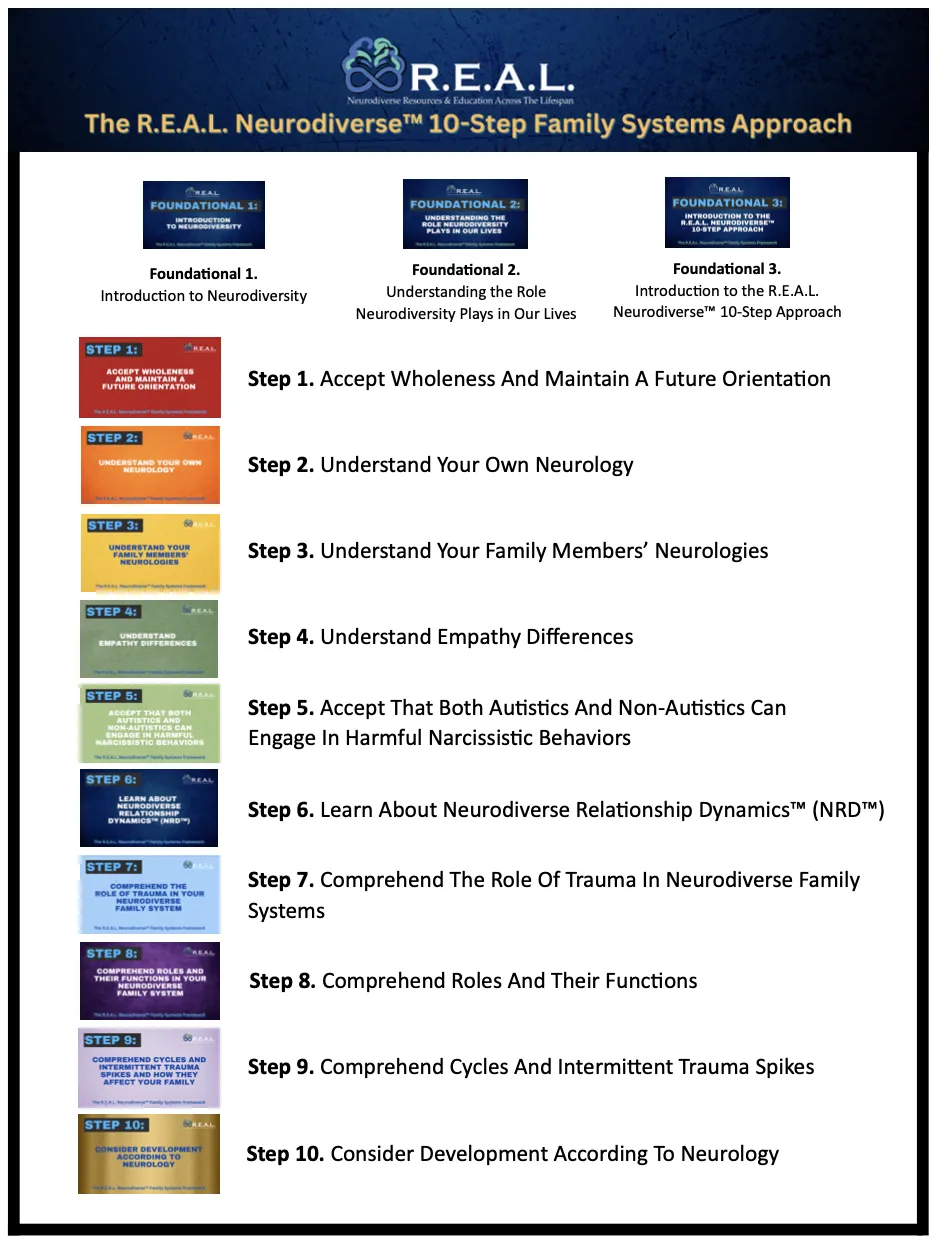
Everything in the R.E.A.L. Framework is designed to support provider confidence, client clarity, and ethical application across neurodiverse systems.
Two Ways to Bring R.E.A.L.™ to Your Work
Credentialing
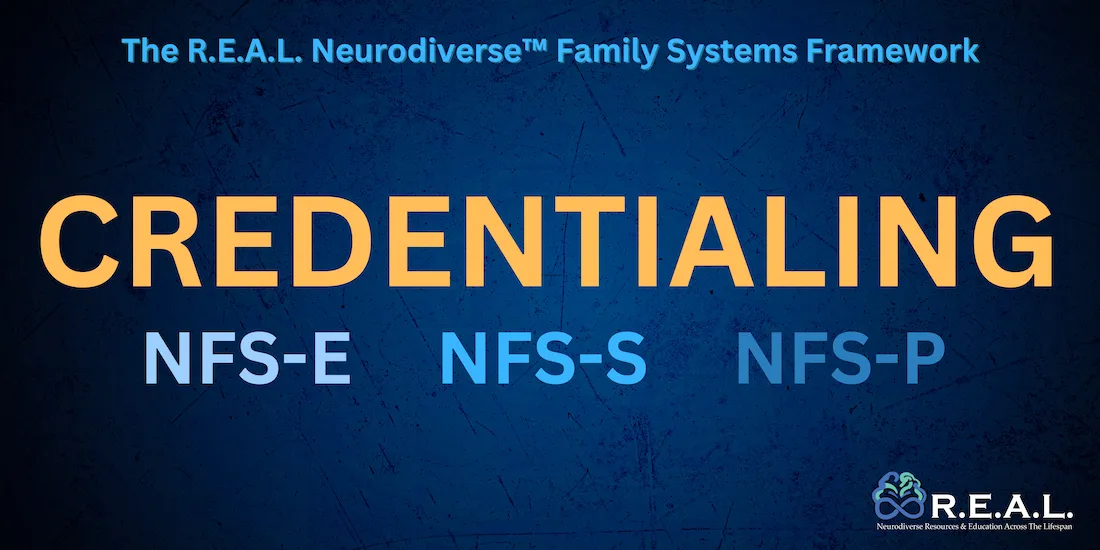
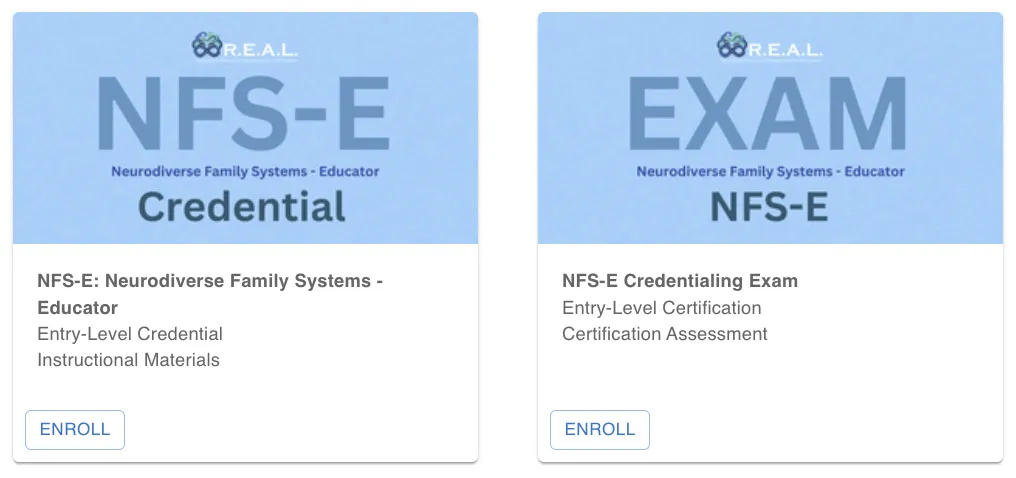
Become a certified Neurodiverse Family Systems provider. Three tiers (NFS-E, NFS-S, NFS-P) reflecting increasing competence and access to advanced tools.
Practice Access
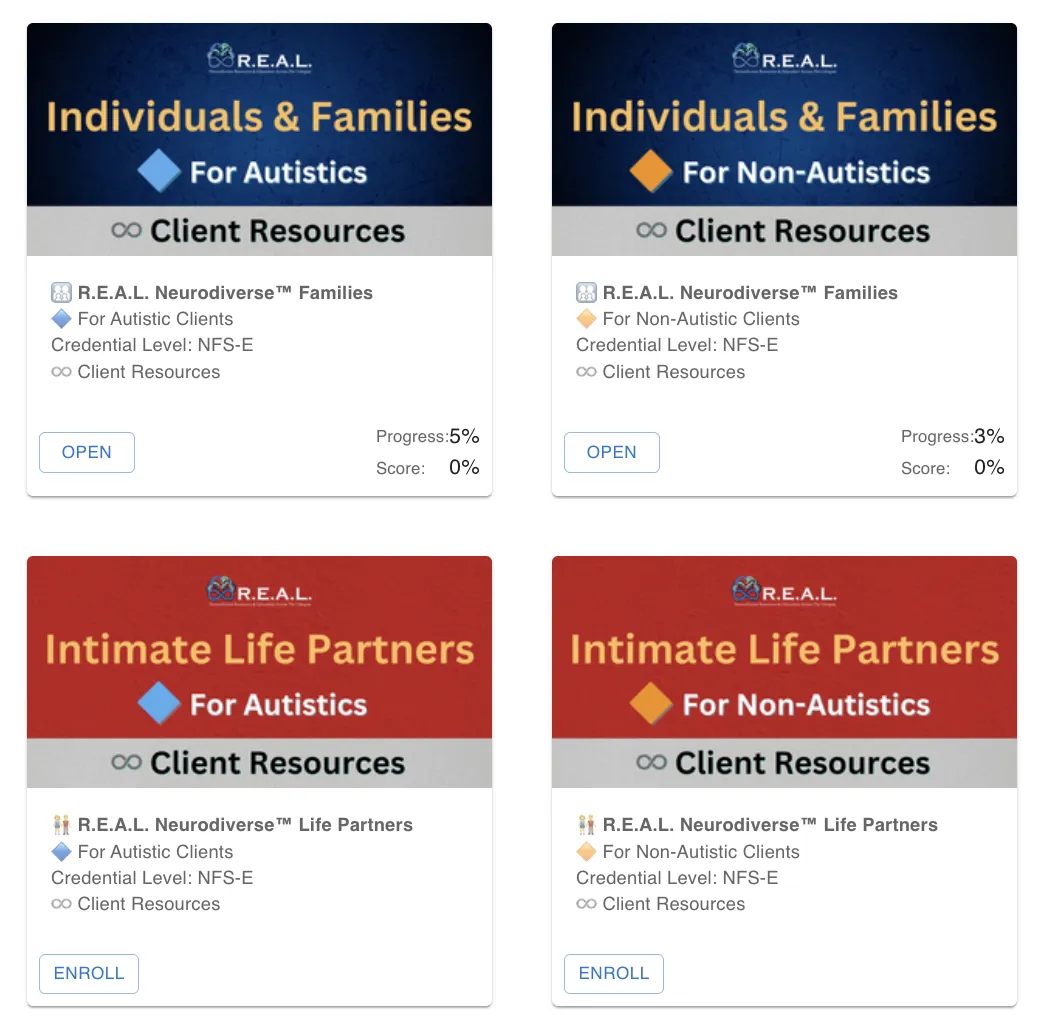
Once one provider is credentialed at the NFS-E level, your practice gains access to all NFS-E-level provider and client-facing materials through UnitusTI. Solo and group pricing available.
Looking For Personal Support?
You Don't Have To Figure This Out Alone
Not a helping professional? Anne works directly with Level 1 autistic adults, their partners, and families using the same 10-Step R.E.A.L. Approach. If you're navigating a neurodiverse relationship and want compassionate and structured yet flexible guidance—there's a path for you too.
When you work with Anne, you're not just getting sessions. You get access to the full R.E.A.L. Neurodiverse™ toolkit:
• Psychoeducational videos you can revisit between sessions
• Quantitative assessments that finally put words to what you're experiencing
• Structured reflection tools to deepen your insight over time
• A clear, step-by-step pathway—not open-ended talk with no direction
This is support that meets you where you are. Where you go from there? That's yours to decide.

Built For Helping Professionals

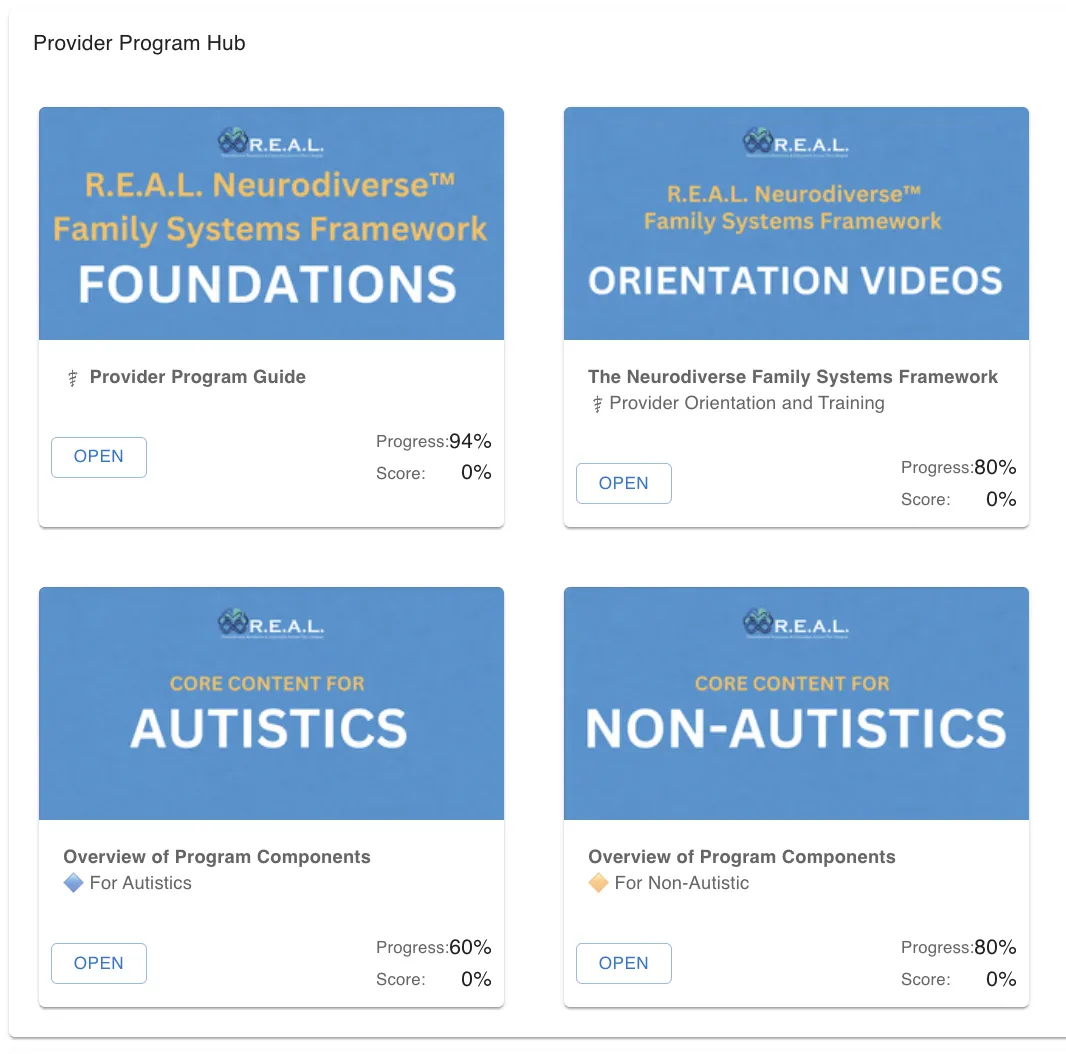
The R.E.A.L. framework is designed for therapists, counselors, coaches, social workers, clergy, and domestic violence advocates who work with:
• Level 1 autistic adults (diagnosed or self-identified)
• Partners and spouses in neurodiverse relationships
• Families navigating late-in-life autism discovery
• Individuals seeking to understand their relational patterns
Ready To Bring R.E.A.L. To Your Practice?
Two Simple Options
Group Practice
Tiered Pricing
One Credentialed NSF-E Provider
Full System Access for up to 10 Team Members
Significant Savings at Scale
Cancel anytime
Solo Practice
$99/month
One Credentialed NFS-E Provider
Full System Access
Cancel Anytime
Ready To Transform Your Practice?

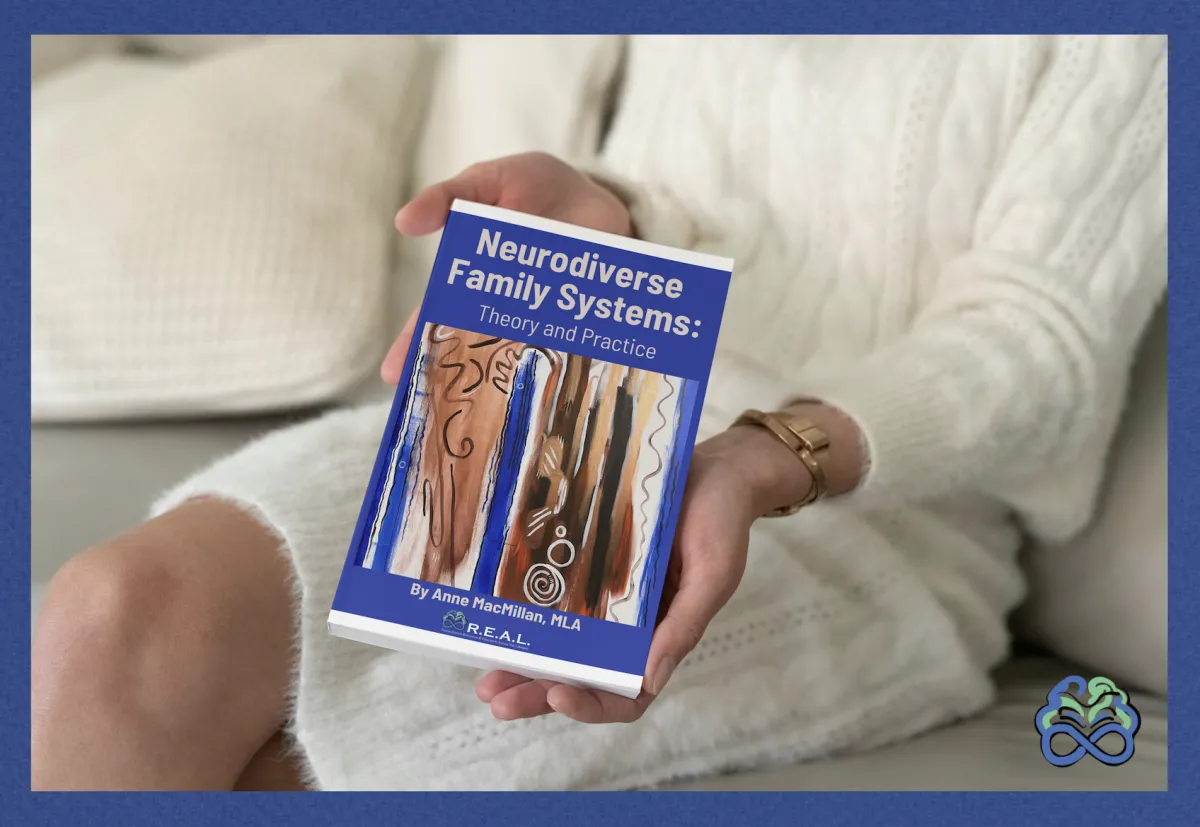
Pre-Order Your
Copy Today
Neurodiverse Family Systems: Theory and Practice
By Anne MacMillan, MLA
© 2026 R.E.A.L. Neurodiverse™
All Rights Reserved
anne@REALneurodiverse.com
Text or WhatsApp: (617) 489-2913 (United States)
